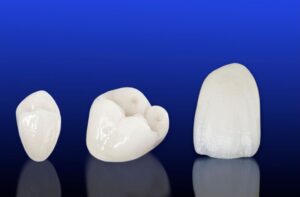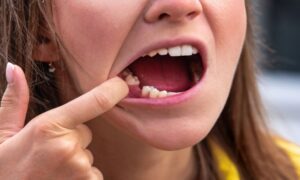Does Cold Weather Affect Oral Hygiene?
Tooth sensitivity can increase during the cold winter months. Cold weather can shock the normally 98 degree teeth and gums and create sharp pain in the mouth. Not all people suffer from extreme tooth sensitivity, and it can be alleviated by discovering the cause and eliminating it with a proper hygiene routine.
Cavities:
Cavities leave the mouth more susceptible to cold weather sensitivity than teeth without cavities. Cavities are caused by bacteria that erodes tooth enamel and opens up the sensitive nerve ending below the surface. Similar to how when eating extremely cold food items with a cavity causes pain can occur, being out in cold weather cause pain by getting below the enamel of the tooth and affecting the nerves.
How to Fix with Oral Hygiene:
Preventing cavities requires brushing and flossing regularly, at least twice a day. Doing so after every meal can greatly decrease the chances of getting a cavity.
Defective fillings
Fixing cavities with fillings put in by a dental professional is typically the best way to get rid of sensitivity. However, this is not always the case. Fillings are known to fall out or become loose over time reopening the cavity to severe weather and increasing the chances of pain. Having regular appointments with a dental professional can help to ensure that fillings are connected properly and won’t be leaving the tooth open for more damage. Metal fillings can be culprits of cold weather sensitivity and pain because the metal can become very cold very quickly and is located closely to the nerves inside of the tooth enamel.
How to fix with oral hygiene:
Brush teeth with fillings more gently than you would other teeth to avoid any accidental removals. Replace metal fillings with porcelain to decrease tooth sensitivity.
Gum disease
Food left lodged between teeth and gums allow bacteria to multiply and cause oral damage. When bacteria eat away at the gums and teeth causing gum disease, the mouth becomes much more sensitive to extreme temperatures and may more easily be subject to pain. Gum disease on its own can be painful and when matched with very cold weather can cause a lot of irritation.
How to fix with oral hygiene:
Brushing, flossing and rinsing with mouthwash regularly can help to decrease oral bacteria. The most efficient way to get rid of bacteria is by using fluoride products.
Teeth grinding
Some people unknowingly grind their teeth while asleep or awake. Grinding teeth can result in cracking or erosion of the tooth enamel leaving it more prone to weather sensitivity. To determine whether or not you grind your teeth while sleeping, ask a partner if they’ve noticed you doing it or consult with a dental professional.
How to fix with oral hygiene:
Purchase a mouth guard to use while asleep to protect the teeth from rubbing against each other. Make sure to clean the mouth guard regularly to get rid of bacteria.
Brushing too forcefully
When purchasing a toothbrush, it is necessary to inspect the hardness of the bristles. Toothbrush heads with hard bristles can cause irritation and inflation to the gums and increasing their sensitivity. Brushing too roughly can cause damage not only to gums but also teeth.
How to fix with oral hygiene:
When purchasing a toothbrush, look for one with soft bristles and be more gentle when tackling the gum line. Author Dr. Jonathan McNeil
Do you have any questions about any of these issues? Mint Dental’s staff is here to help, give us a call or schedule an appointment for any dental need!






